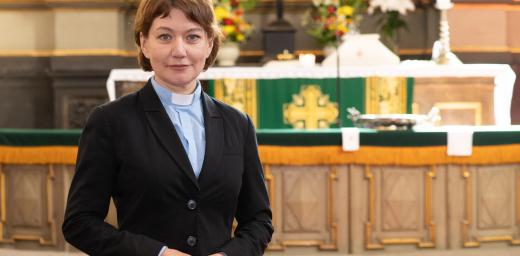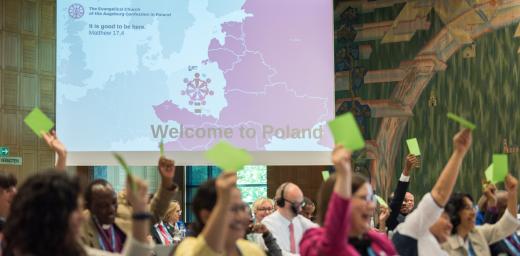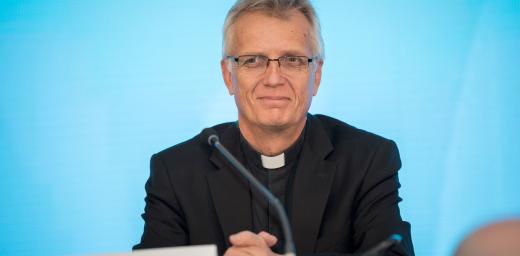Zimbabwe: Resilience amid challenging times
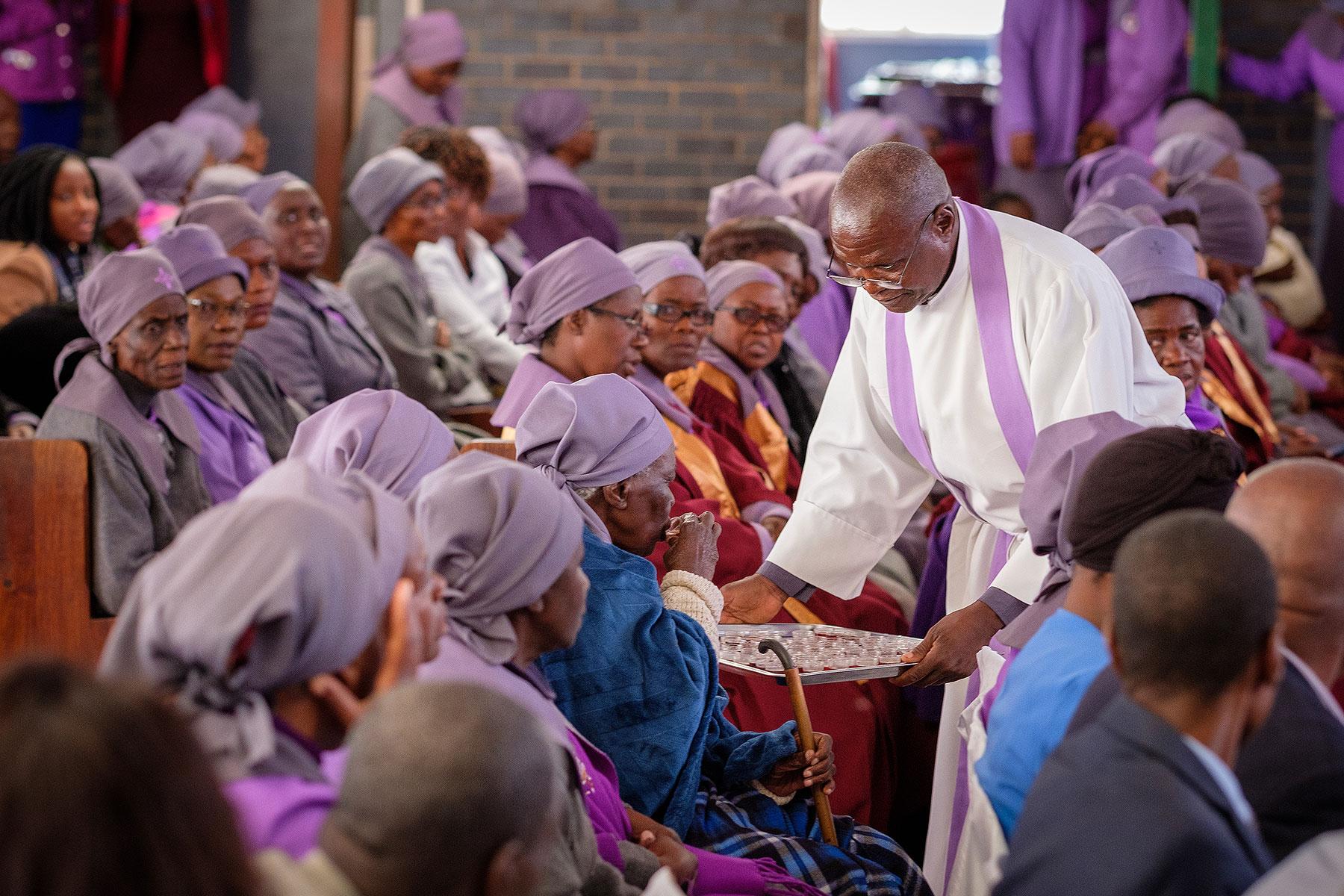
A member of the Bulawayo congregation receives communion during the Sunday service. Photo: LWF/A. Danielsson
LWF General Secretary and high level delegation visit
(LWI) "First we prayed for you during the drought, but now we have come to see you and meet you. In our hearts the question: how are our sisters and brothers doing?” We came for a visit of encouragement, but after our first day here we are already wondering: who is encouraging whom? said LWF General Secretary Martin Junge as he reflected on his visit to Zimbabwe last week.
The visit began in Bulawayo, where the Evangelical Lutheran Church in Zimbabwe has its headquarters and continued in Harare where the LWF delegation met with the Lutheran Development Service and the Zimbabwe Council of Churches. The delegation also visited projects implemented by the church and its ecumenical partners.
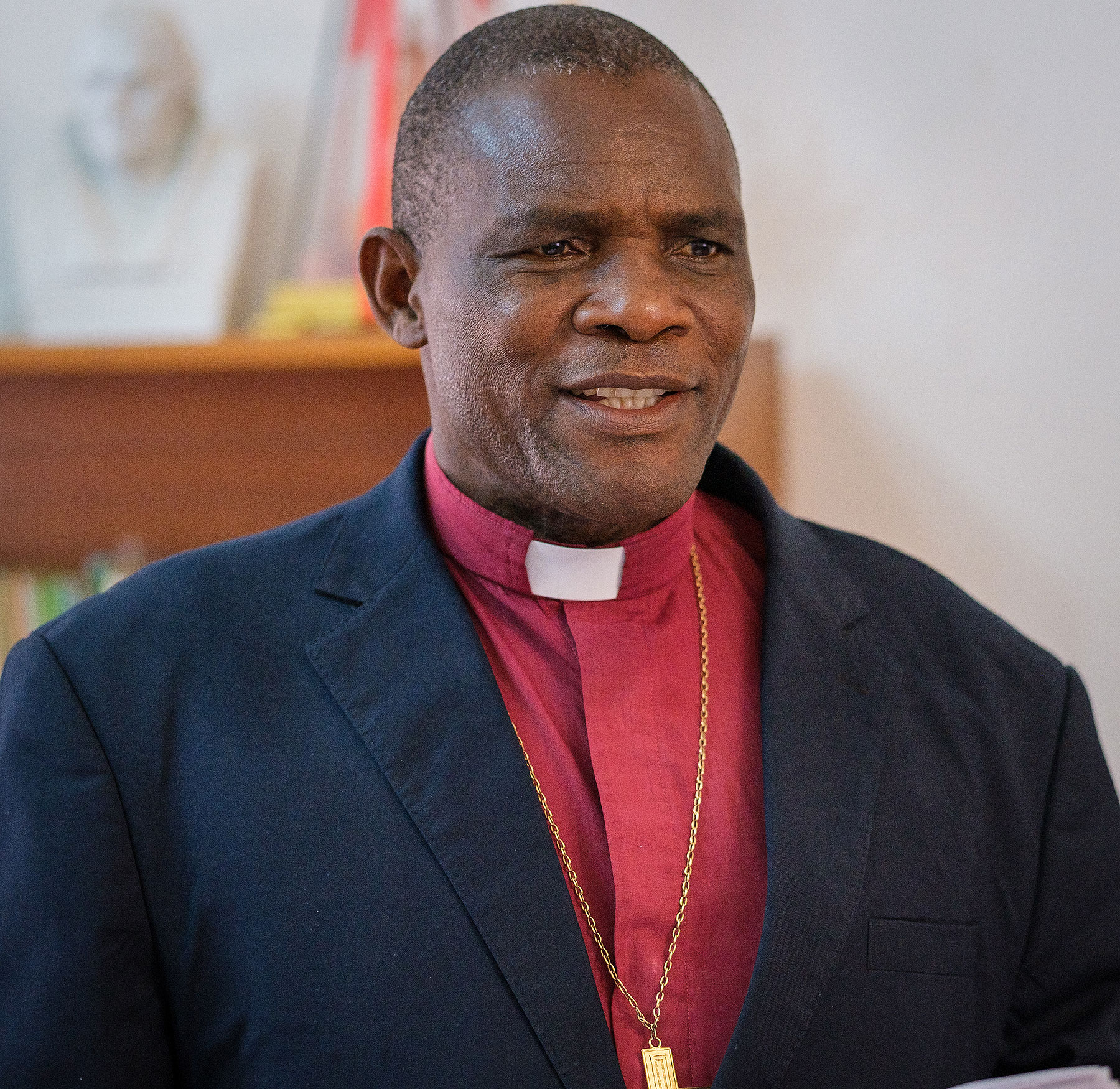
Presiding Bishop Chemist Faindi leads the Evangelical Lutheran Church in Zimbabwe and is an advisor to the LWF Council.
The ELCZ has more than three hundred thousand members across 370 congregations throughout the country. It runs thirteen schools, a center for youth, a center for women, two bible schools, four hospitals and a clinic. it works on combating malaria, promoting gender justice, and diverse diakonal projects, including a program on HIV and AIDS. It collaborates with the Ecumenical Church Leaders Forum in Zimbabwe on promoting peace, reconciliation and dialogue.
Bishop Faindi shared with the delegation how the church is witnessing in challenging circumstances which have been exacerbated by the recent drought. “We are grateful that you came and appreciate your prayers and support,” said the bishop, adding that, while the people of Zimbabwe face difficulties, they are resilient. The work of the church, Faindi reflected, is focused on peace, reconciliation, and dialogue. “The role of the church is to bring people together and our Lord Jesus Christ left a very important commandment: Love one another. This is the core business of the church.”
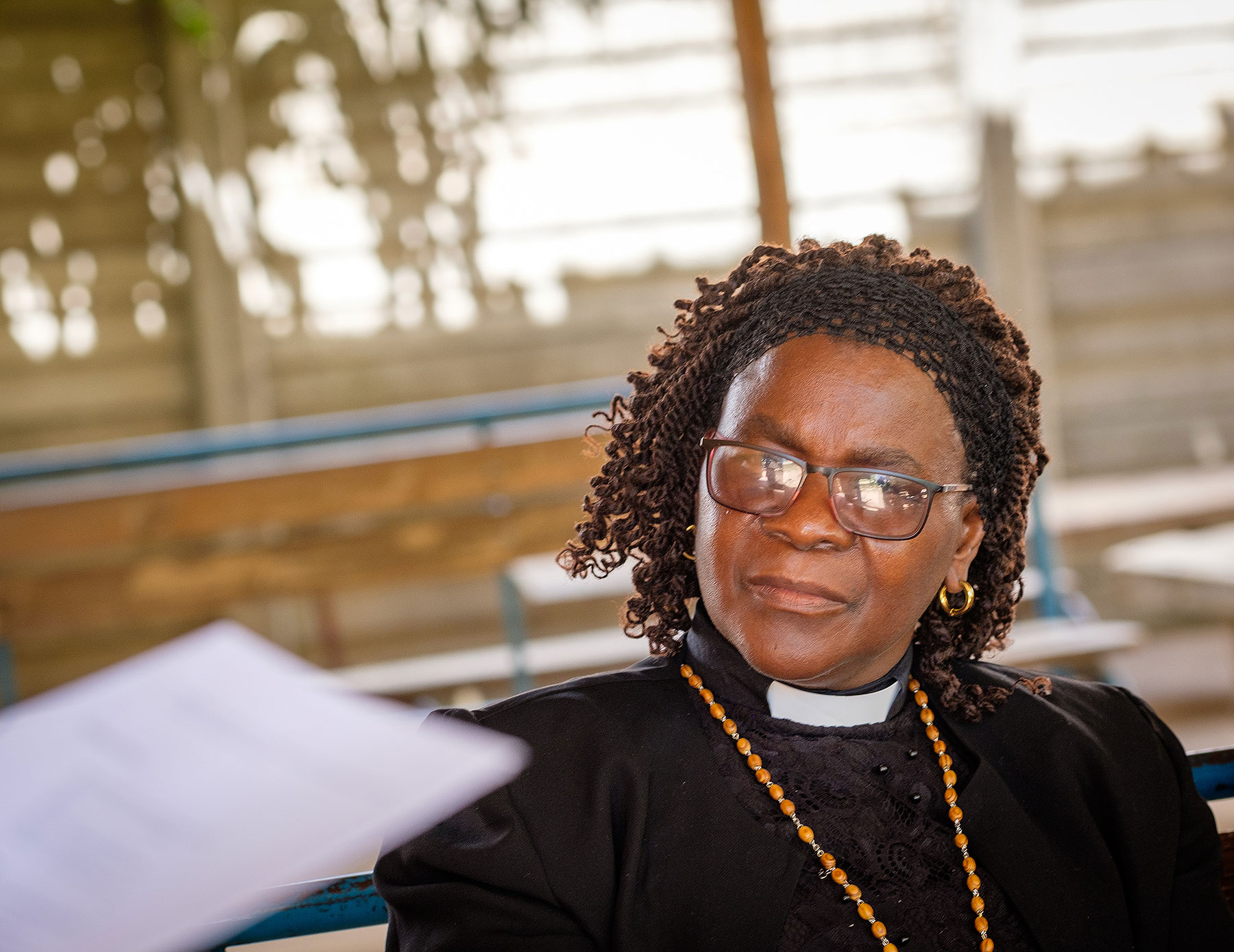
Rev. Elitha Moyo is the national coordinator for Gender Justice in the ELCZ.
The LWF works with the church on projects and programs focusing on gender justice, diakonia, and leadership development. Rev. Elitha Moyo is the national coordinator for the Gender Justice Project which has made a difference for the ELCZ and has been recognized by the Zimbabwe government. Through that the church is able to offers education on gender justice and reproductive health and work against gender based violence in local schools across the country.
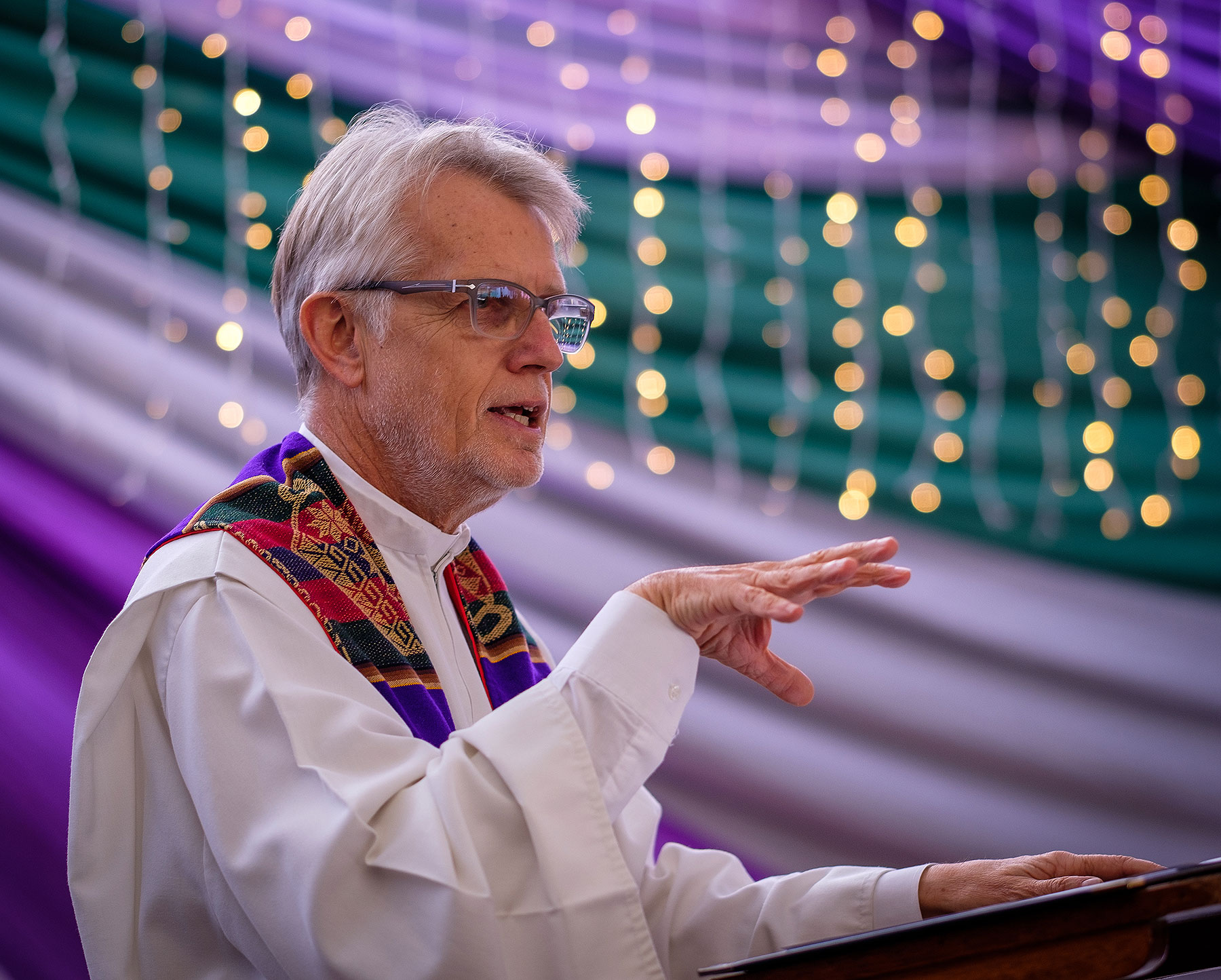
LWF General Secretary Rev. Dr Martin Junge preaching at a Sunday service in Bulawayo.
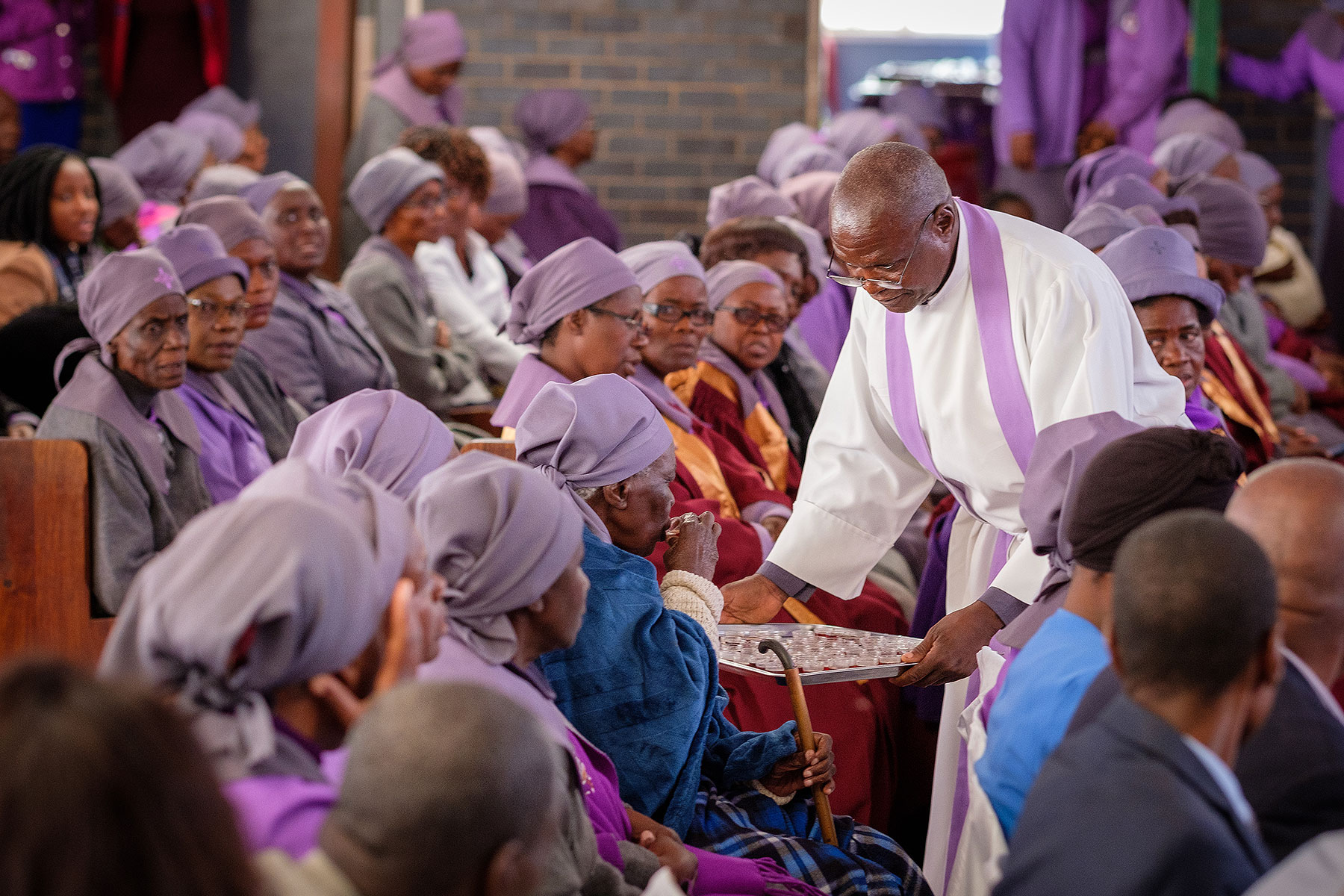
A member of the Bulawayo congregation receives communion during the Sunday service.
“The world church is here today,” said local ELCZ bishop Michael Dube when he introduced the LWF visitors to a large congregation gathered for Sunday worship in Bulawayo. In addition to the LWF delegation a number of ecumenical guests participated, including the local Roman Catholic Archbishop, representatives of the Mennonite church and the chairperson of the Zimbabwe Council of Churches, who is an Anglican bishop.
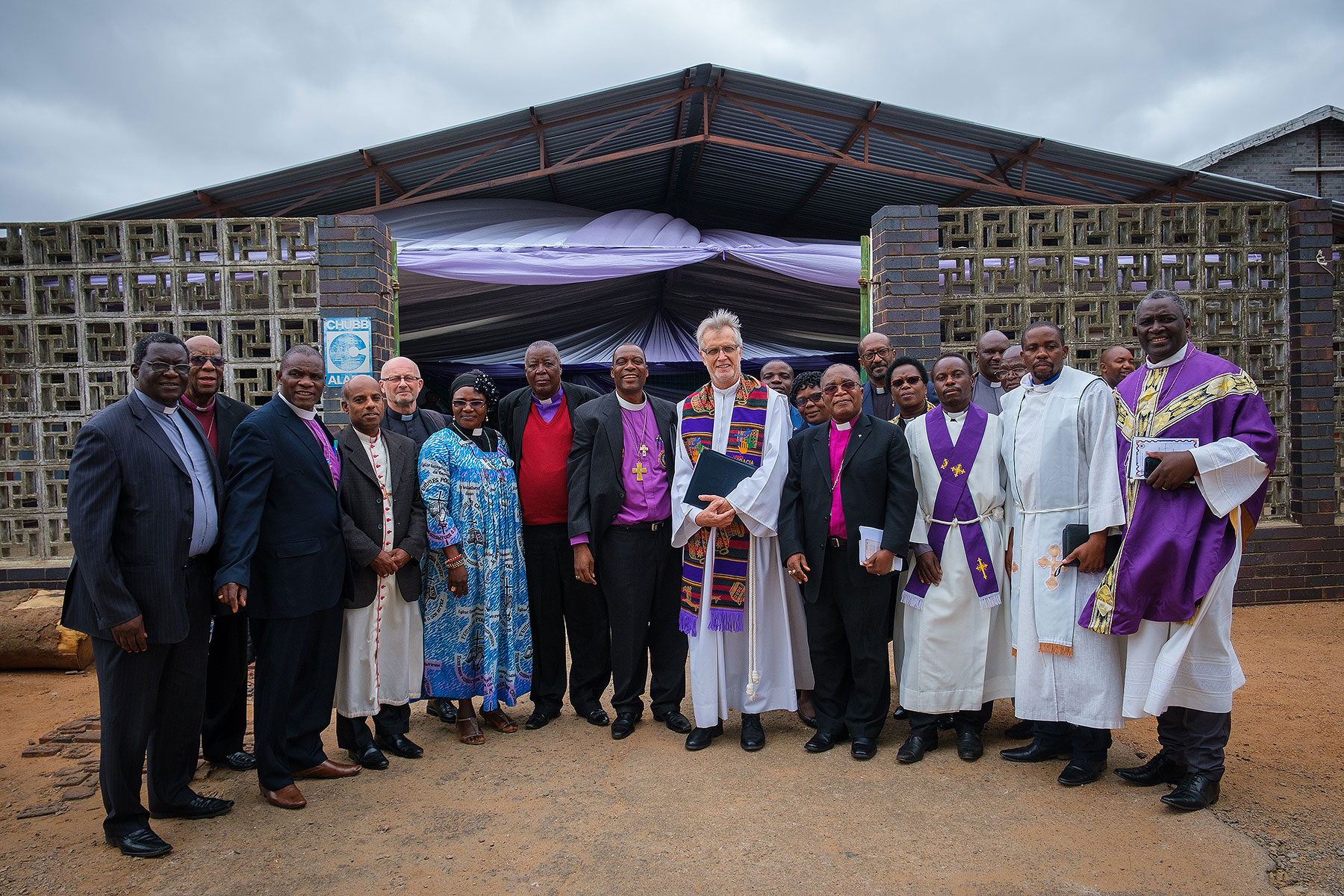
The LWF general secretary with the delegation, ecumenical visitors and local pastors.
In his sermon on Matthew 4, LWF General Secretary Junge, discussed how the story of the temptation of Jesus shows the importance of turning to the Bible when faced with temptations. He reminded that Jesus remained steadfast in God’s mission, which promotes life in abundance to all. He also offered his thanks for the witness of the ELCZ and for the ecumenical fellowship coming together at this worship service.
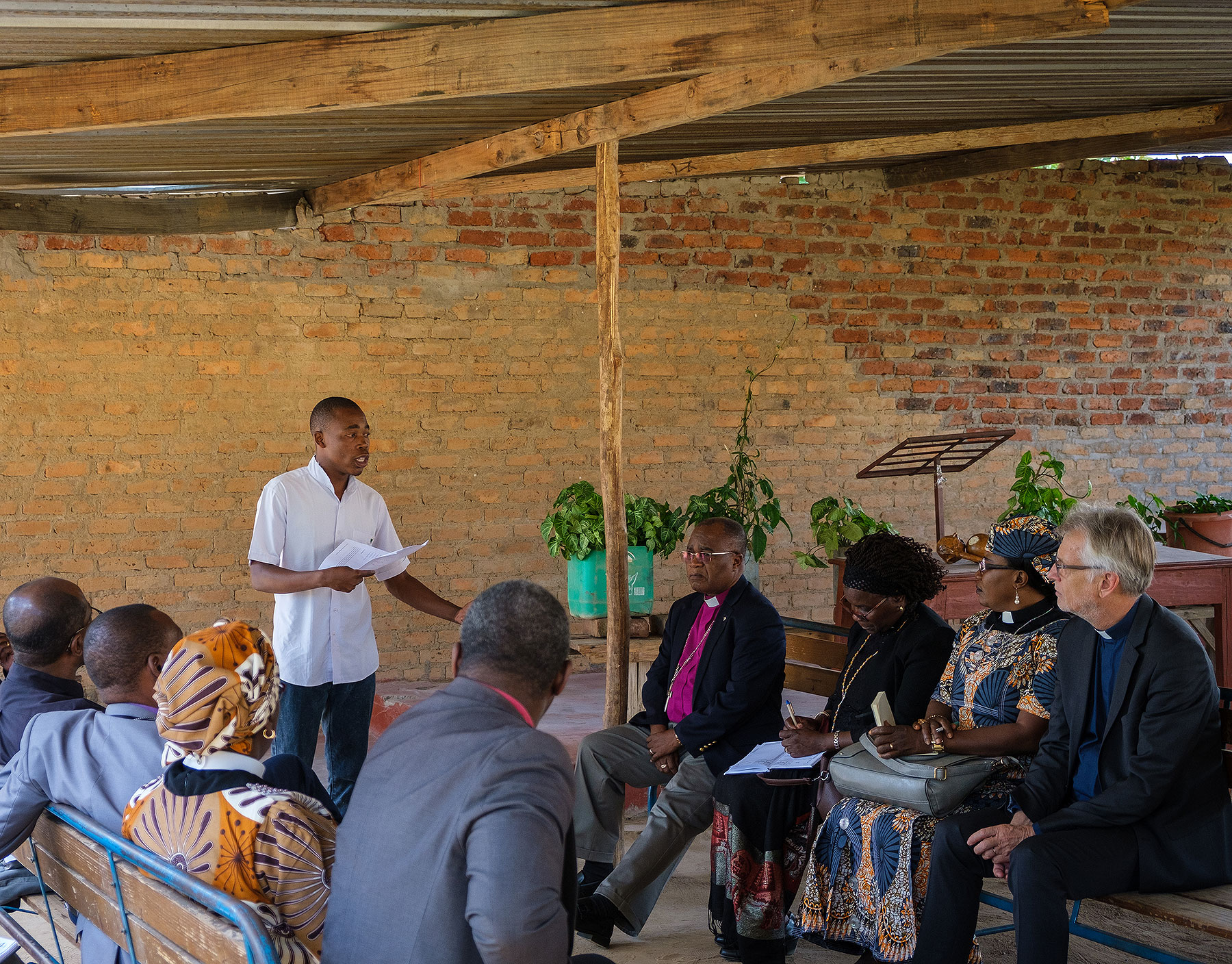
Blessed are the peacemakers. A project leader of the Epworth Local Peace Council introduced the Council to the LWF delegation.
The Epworth dormitory town outside Harare is home to more than 150 thousand people. The local peace council, supported by the Zimbabwe Council of Churches, works for peace building involving all stakeholders. Together it is creating and promoting safe spaces for survivors of violence and abuse, and informing communities through campaigns about peace. The goal is long-term peace and safer communities for all.
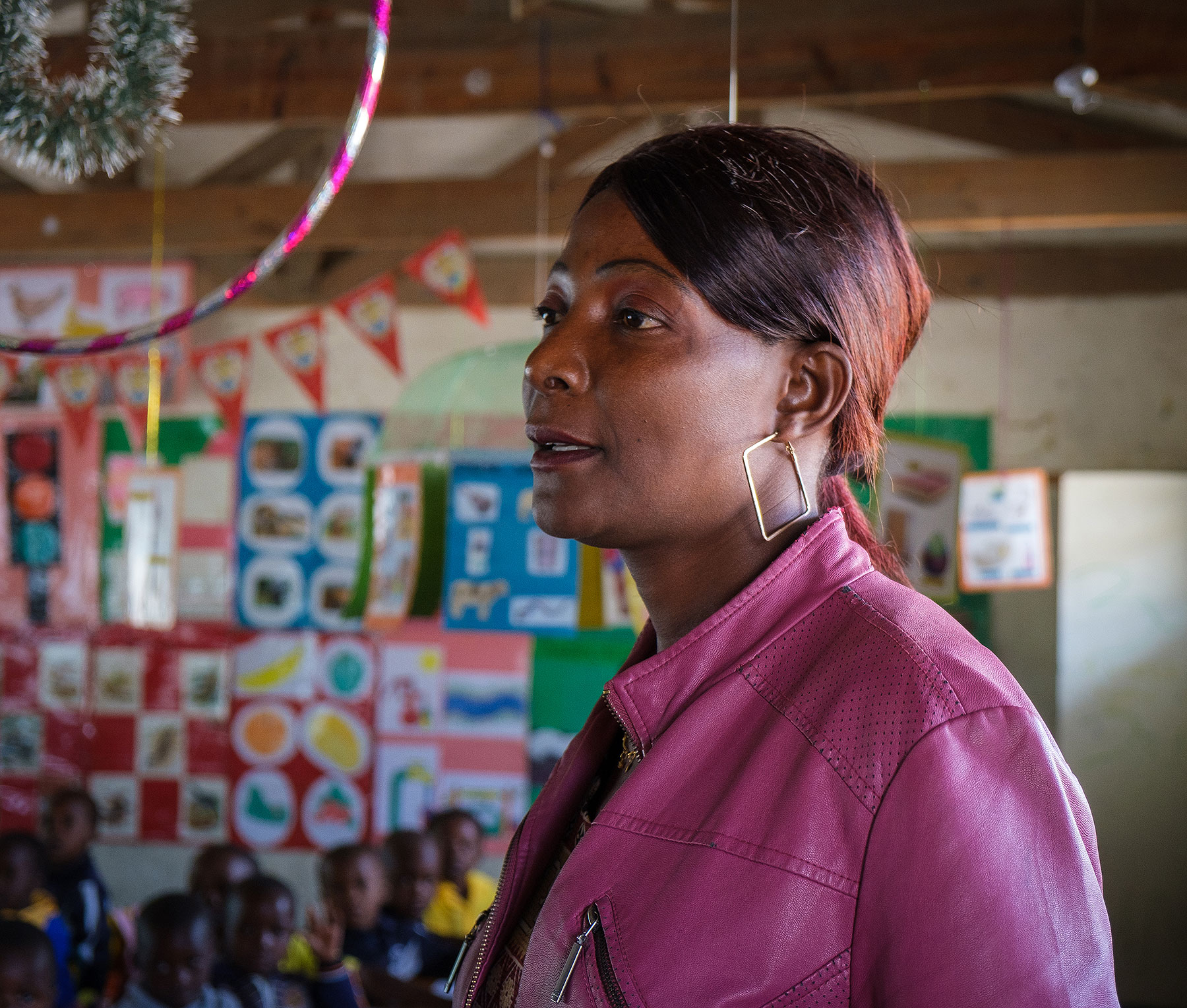
One of the teachers at the Chinyika primary school.
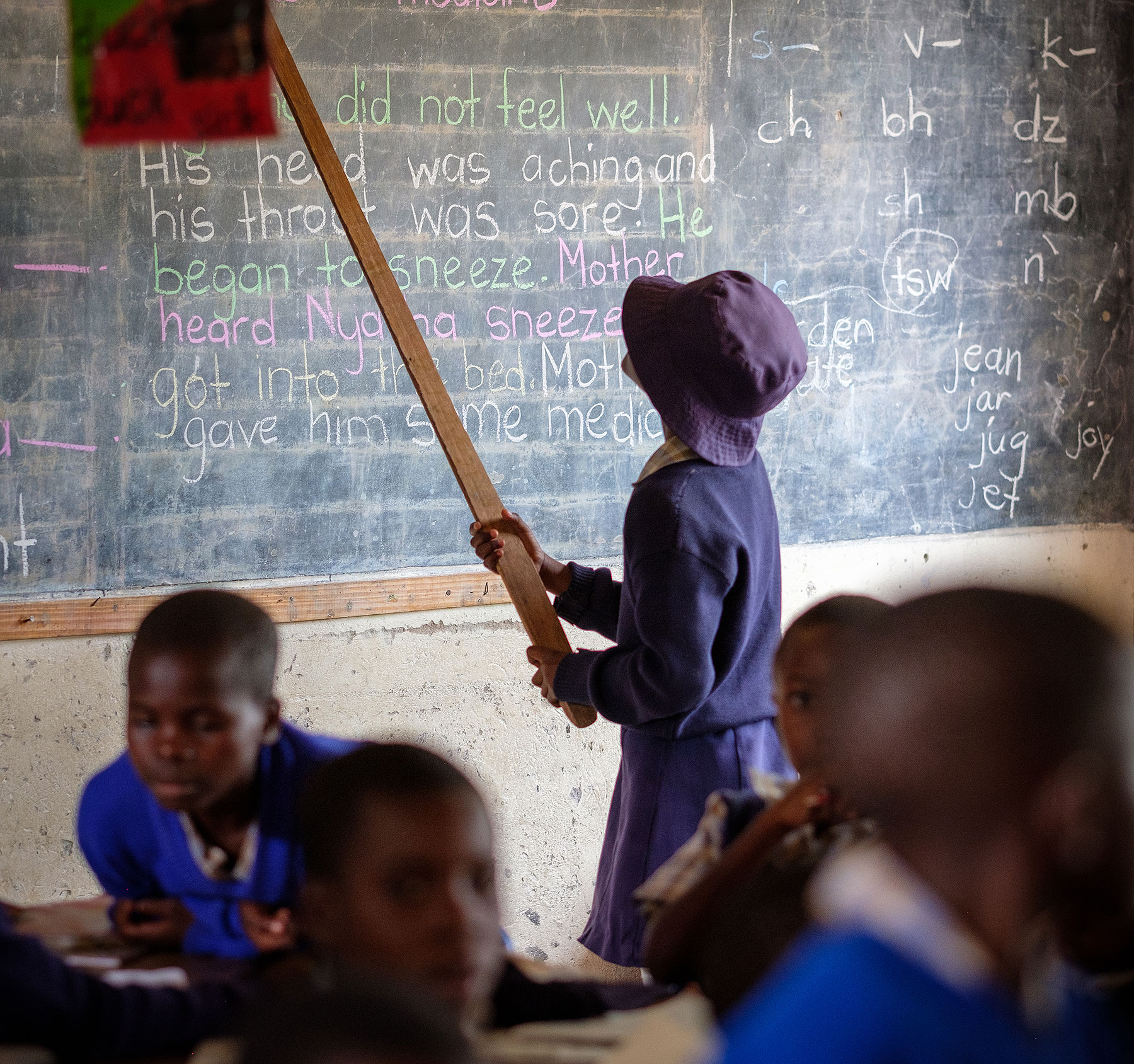
More than 2000 children study at the Chinyika primary school.
“Building for the future” is the motto of the Chinyika primary school. It was established and run by the Salvation Army. More than 2000 students get their education at the school, which is located in a rural area close to Harare. Over 800 of the students are orphans.
The LWF delegation visited the school to meet with teachers and students and see two livelihoods projects supported by the Zimbabwe Council of Churches. “I thought I would meet facilitators, but the teachers I met are actually heroes who are truly building the future,” remarked LWF General Secretary Rev. Dr Martin Junge.
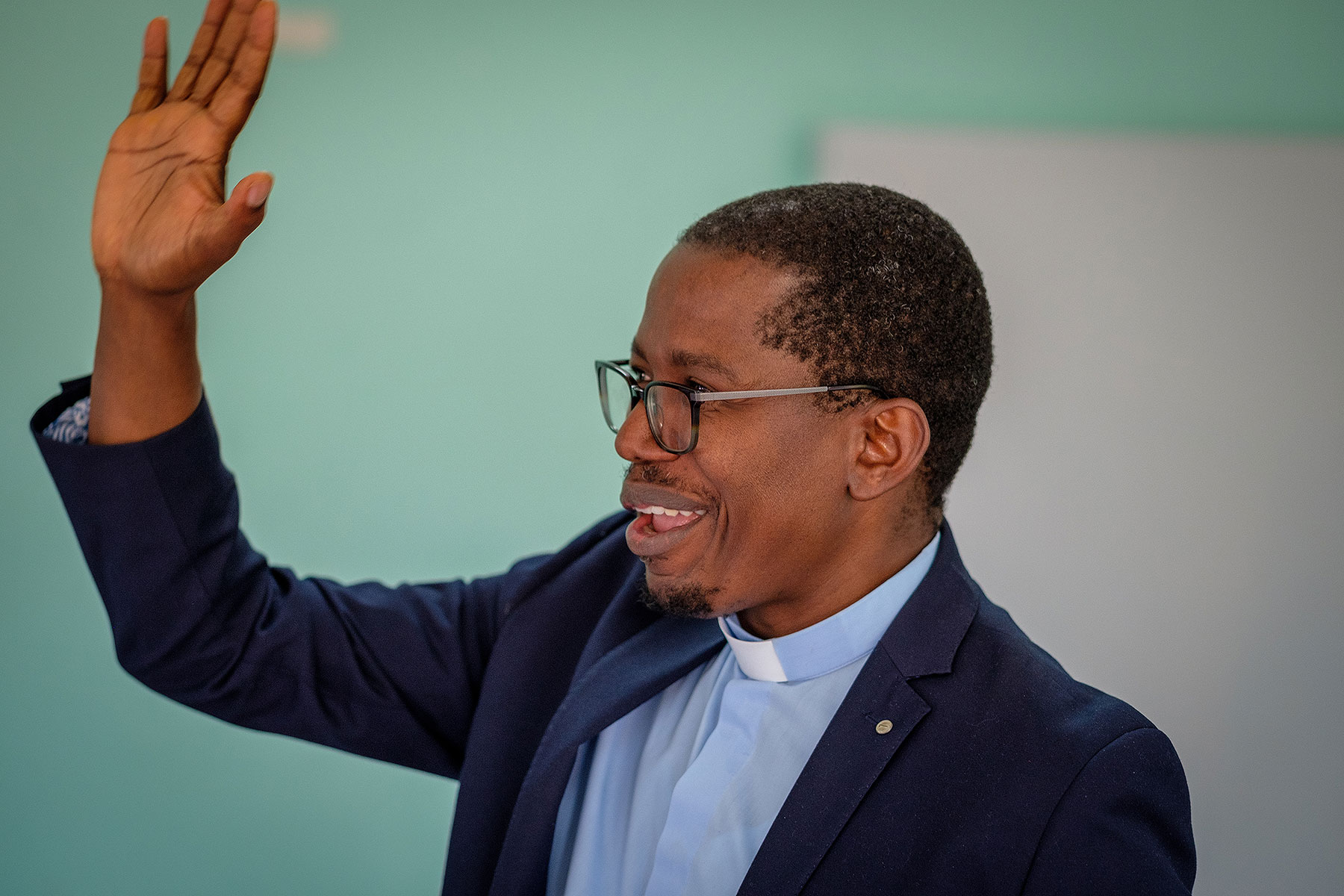
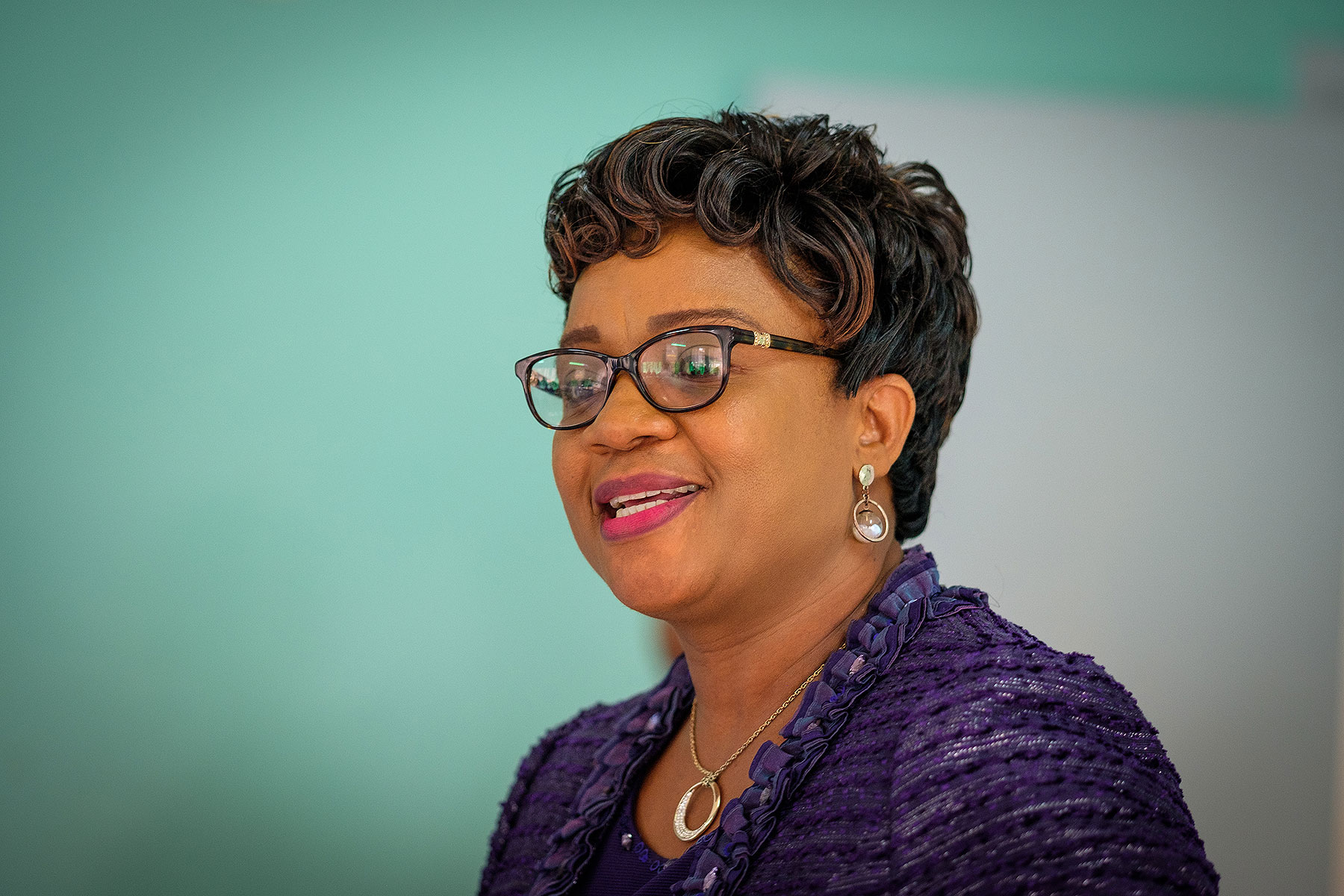
Rev. Dr Kenneth Mtata is the General Secretary of the Zimbabwe Council of Churches. Ms. Vimbai Nyemba is the ZCC Board Chairperson.
The delegation from LWF visited the headquarters of the Zimbabwe Council of Churches, to meet with staff and learn about the many-faceted work of the Council, which ranges from ecumenical relations to peace-building and nation building. They were received by ZCC Board Chairperson Ms. Vimbai Nyemba and the ZCC General Secretary Rev. Dr Kenneth Mtata, who is also a former study secretary of the LWF .
The penultimate day concluded with the LWF General Secretary delivering the Herbert Chikomo Memorial Lecture at the Anglican Cathedral. Chikomo is a former leader of the ZCC and was integral to how the ecumenical movement came to be understood in Zimbabwe. The LWF General Secretary spoke to a full house on the topic of the church in the public space.
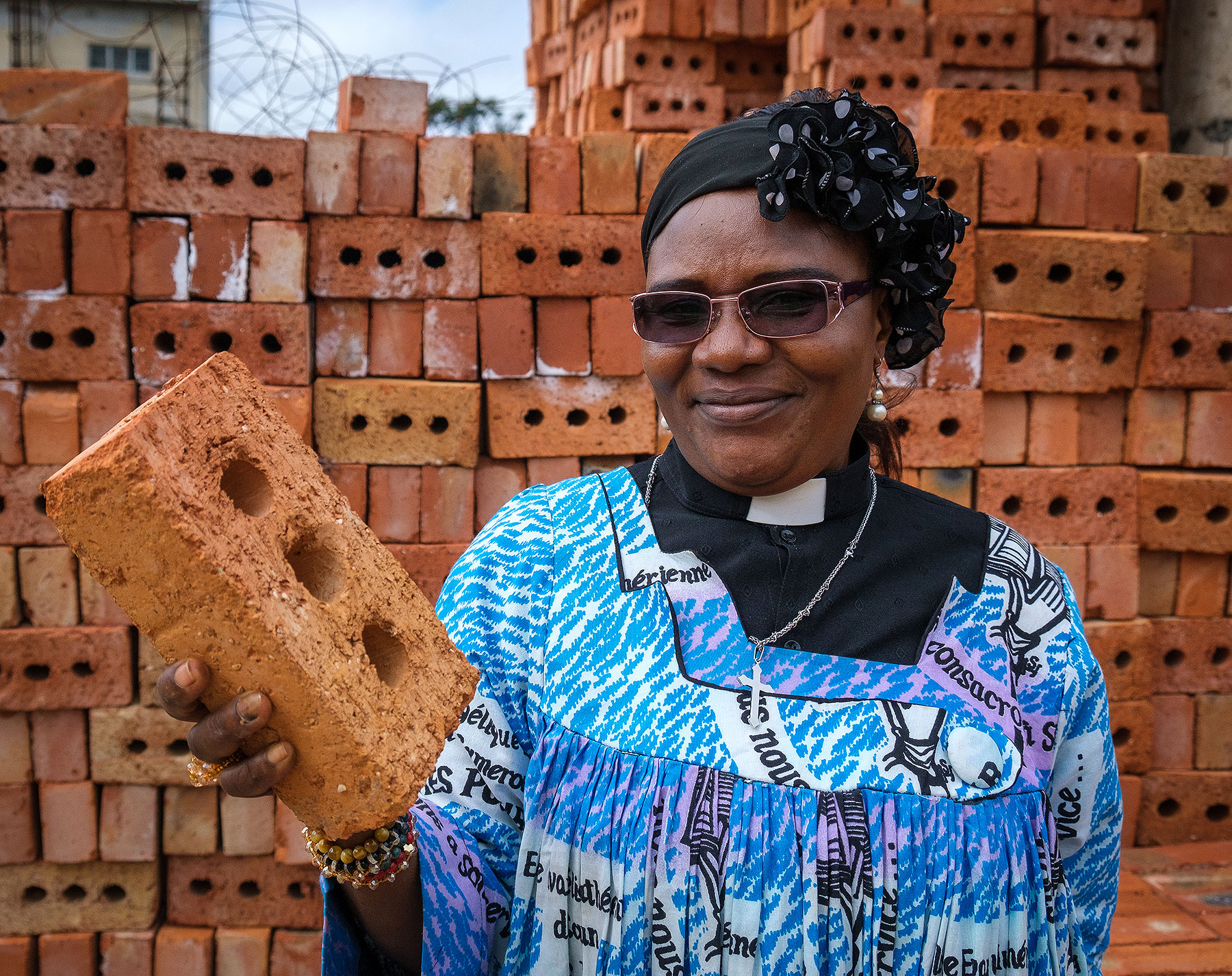
Rev. Dr Jeanette Ada Maina, LWF Vice-President for Africa.
“I am deeply touched by what I hear about the church’s work in Zimbabwe,” said LWF Vice-President for Africa Rev. Dr Jeanette Ada Maina, reflecting on the visit. “The church here is confronted with a reality which is shared by many churches and societies in Africa. In a difficult situation your spirit is inspiring – you have gone beyond, and that is the strength of faith.”
The delegation, led by the general secretary, also included Rev. Dr Jeannette Ada Maina, LWF Vice-President for Africa, Bishop Dr Joseph Paul Bvumbwe, LUCSA President, Rev Mats Thurfjell, Church of Sweden, Rev. Benyam Kassahu, ELCA Director for Africa, Rev. Dr Elieshi Mungure, LWF Regional Secretary for Africa, and Rev. Arni Svanur Danielsson, LWF Head of Communication.
They were joined by ELCZ Presiding Bishop Chemist Faindi, Bishop Kenneth Sibanda, ELCZ Central Diocese, and Bishop Michael Dube, ELCZ Western Diocese, Rev. Elitha Moyo, LWF Council member, Mr Munatsi M Dube, ELCZ General Secretary, Ms. Simangaliso Hove, director of the Lutheran Development Service, and other representatives of the local church and organizations.
The Evangelical Lutheran Church in Zimbabwe has been a member of the LWF since 1963. The church focuses on proclamation of the gospel, education and health services. It also engages in diaconal work through the Lutheran Development Services. ELCT has 308 thousand members in three dioceses and about 370 congregations across the country. The church is led by Eastern Diocese Bishop Chemist Faindi. The ELCZ runs 13 schools, a center for youth, a center for women, two bible schools, four hospitals and a clinic. It runs projects on malaria, diakonia, and gender justice. It also runs a programme on HIV and AIDS.


